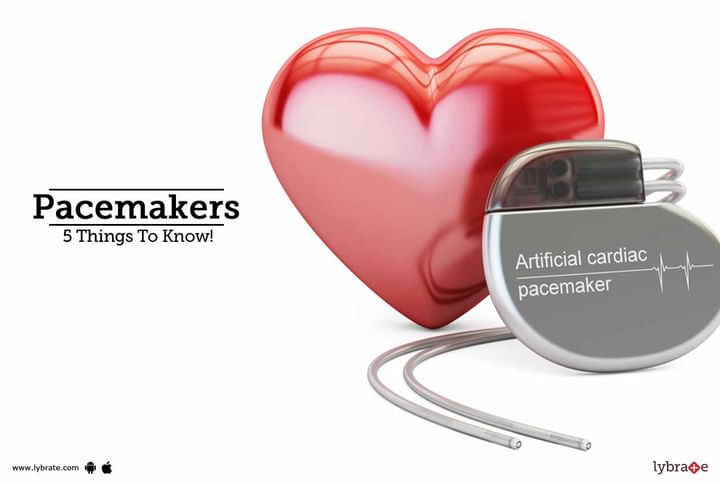Pacemakers - 5 Things To Know!
1. What is a Pacemaker?
Pacemaker is a small battery operated device that can be used to keep the heart beating when the normal electrical conduction of heart becomes diseased. It consists of one pulse generator which contains the battery as well as software and is implanted under muscle or skin under the shoulder. And wires which are connected to the heart and act as electrical wires for conduction.
2. What are the types of pacemakers?
There are many types of pacemakers available today.
- Temporary Pacemakers - these are used temporarily when there is a reversible cause of disease or as a bridge before the permanent pacemaker can be implanted.
- Permanent pacemakers - these are small devices which can be implanted permanently in the body by making a small cut in the body. They are available in many different types.
- Capsules pacemakers - These are small capsule shaped devices which can be put in heart and control the conduction from there.
3. What are the different types of permanent pacemakers?
Many varieties of Permanent pacemakers are available in the market and are advised depending on the type of disease. The cost varies depending on the type and models. Single chamber pacemakers - which pace only one chamber of the heart. requiring only one wire. Dual chamber pacemakers - which pace both chambers of the heart and require two wires. MRI compatible version of all these pacemakers are now available as well.
4. How is pacemaker implanted in the body?
The procedure is done with local anaesthesia, in a cath-lab and can take 2-3 hrs. A small cut is put under the shoulder and the device is put beneath the muscle plane. The cut is then stitched and dressing is done. The stitches are cut or dissolve (if dissolvable sutures are used) in 5-10 days and the patient is discharged the next day after implantation on some pain killers and antibiotics. A small 5 cm scar can be seen at the implant site, and in case sutures are done by a plastic surgeon even that may not be visible.
5. Can I do normal activities after getting a pacemaker implanted?
Yes. The patient can walk and travel right from the next day after the procedure. There are few precautions that are advised for a month and after that you can do all of your routine normal activities. You can use electrical equipments, microwaves, phones etc. In fact people play tennis, do swimming and other sports after pacemaker. You will be provided with a list of precautions post procedure. And will need to get routine follow up every 3-6 months with your cardiologist for checking of device parameters and battery life.
When the battery of device becomes low the cardiologist will advice you for a pulse generator replacement. In case you have a concern or query you can always consult an expert & get answers to your questions!



+1.svg)
